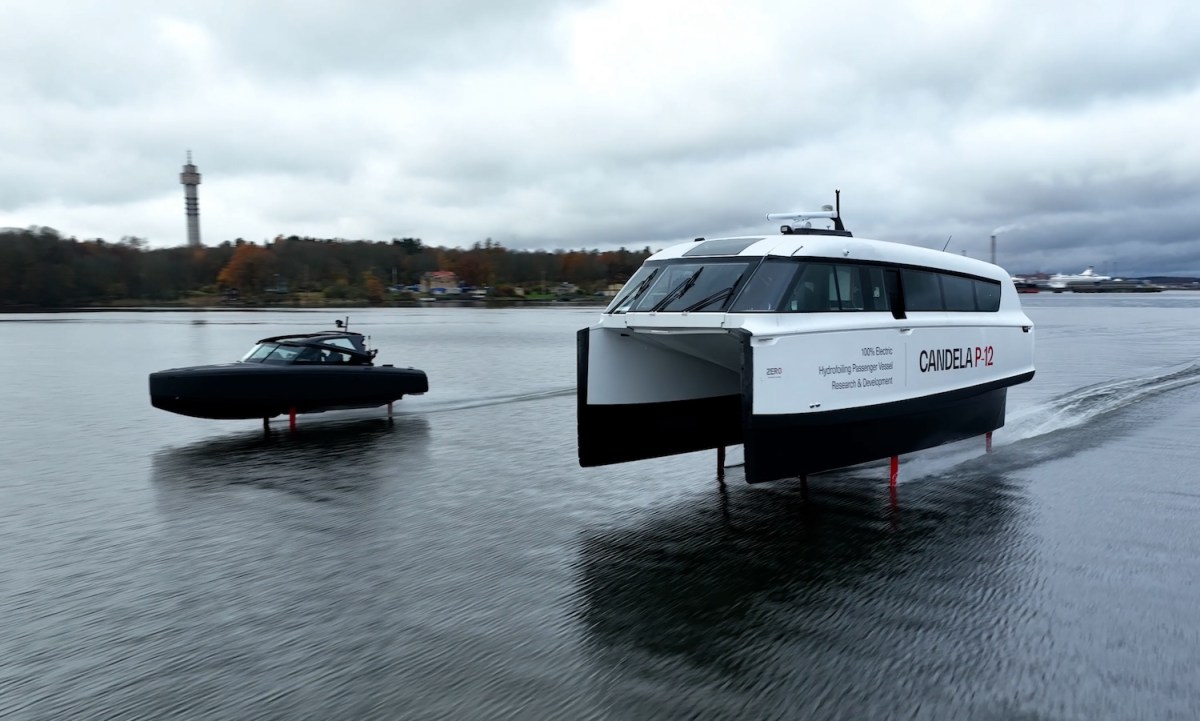
Electric boat maker Candela is approaching cruising speed with $25 million in new funding and the first commercial deployment of its new P-12 ferry in New Zealand. The company has global ambitions for its highly efficient boats and has completed and delivered dozens of them — which is a lot in this industry!
Candela has been slowly upping the size of its vessels for years, starting with the considerably smaller C-7 and C-8 (noting the length in meters) — of which, as of this week, they have now produced a total of 70. The P-12, a ferry design that can handle up to 30 passengers, made its debut late last year.
Just last week, the P-12 was given its first assignment: ferry people around New Zealand’s Lake Manapōuri, a scenic destination but also, more importantly, the site of the country’s largest hydroelectric power station. And now staff at that station can get to work via clean-running boat rather than driving, which the companies estimate will save around 240 tons of emissions per year. It’s a start, and it will help keep the lake clean and quiet.
International interest in these boats is also evident in the participation of Groupe Beneteau, a more than century-old boating company that makes thousands of vessels yearly, in the funding round. Groupe Beneteau CEO Bruno Thivoyon expressed in the press release that investing in Candela makes sense as part of the company’s “ecological transition objectives, scaling up innovative solutions for more sustainable boating.”
Many legacy boating companies are embracing electric engines and next-generation tech; I spoke with the head of another major manufacturer, Brunswick’s Dave Foulkes, at CES about it. He said that the collaborations are fruitful because the small, growing companies need the income and reach, while the larger ones need ready-to-deploy tech. Like any other industry, you have to know when to buy and when to build, and big boating companies are happy to buy — or invest.
Candela’s boats use hydrofoils with electric engines mounted on the bottom to effectively fly above the surface of the water once they get past a certain speed, vastly reducing energy consumption — historically and understandably a sticking point for electric boating. The approach does necessitate a powerful autopilot to keep it balanced, and despite their assurances, I wonder about how they’d handle log collisions, but overall the advantages seem to outweigh the drawbacks.
I drove one over the summer in Seattle (watching closely for logs, rather common in Elliott Bay) and wished they would replace the gas-chugging fast passenger ferries with P-12s. Candela isn’t the only one pursuing this market, either; Navier is also attempting to woo coastal communities with the draw of quiet, energy-efficient transit and is currently shuttling Stripe employees around the Bay Area. And while Zin Boats has been quiet for some time, they are also nailing down markets for the next version of their vessel.
The $25 million round was led, as mentioned, by Beneteau, with participation from EQT Ventures, Ocean Zero LLC, and Kan Dela AB.